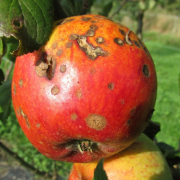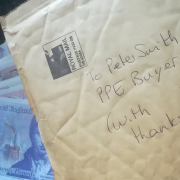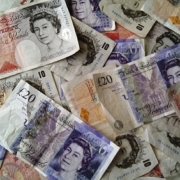Why “VIP Routes” for PPE Suppliers Is a Slippery Slope
In our latest Bad Buying podcast, I interviewed Les Mosco who was Commercial Director at the Ministry of Defence for 7 years in the “noughties”, as well as being a CIPS President and holding top procurement jobs across the banking, oil and gas, and rail industries.
We talked about procurement in the pandemic, and touched on whether a “Tory councillor from Stroud” would really get preferential treatment when it came to offering to supply PPE. We both doubted whether his position would carry much weight at the centre of government, and Les said that in his time in MOD he found politicians and senior colleagues were pretty careful to declare conflicts of interest and the like.
However, the latest information from the Good Law project, who have taken legal action against the government to find out more about some of the “odd” looking contracts that have been awarded, does suggest that there may have been special treatment for some firms.
A flow chart they obtained shows the way the government’s PPE sourcing team handled the thousands of offers for help that came in from all sorts of firms and individuals. The noteworthy element is a box on the chart that says, “Refer China, Donation, VIP or Make cases to correct contact”. There is also a note saying, “Support provided from high profile contacts, require a rapid response and managing through the process. Therefore are managed through the High Priority Appraisals Team”.
There is no definition as yet of exactly how a “VIP” was defined. There is no clear evidence that being a donor to the ruling Tories or knowing a Minister / special adviser meant you were a VIP. But that of course is the suspicion, in the absence of any more clarity about the process. Or it may be that the VIP designation was just intended to make sure important people were handled carefully. They may not have been given any priority in terms of winning business, but perhaps it was just to make sure they did at least get a reply to their offer quickly. Let’s face it, if the Queen had offered to knit a few masks, you would have wanted to reply pretty quickly to her email!
However, the concerns remain that it may have been more than this. Were VIPs helped through the system, and were their offers to supply moved to the top of the priority list? It is also interesting to note that the Daily Mail, a supposedly loyal Tory newspaper, gave this story major coverage. And we still haven’t had the answer to the key question. Exactly how did the PPE buyers choose the firms to supply PPE – in some cases, awarding contracts worth over £100 million to firms with no track record in that supply area.
Now some will say that doesn’t matter anyway which firms won, as long as they did actually come up with the goods. But it does matter. Not only would unfair selection processes and queue-jumping for VIPs break the fundamental principles and regulations of public procurement (UK, not just EU), but the whole concept of privileged access is also a root casue for and enabler of wider corruption in organisations or even countries. You may think that the UK couldn’t go down the route that many other countries have unfortunately followed, but we have to be vigilant. If it becomes who you know, rather than what you can do, we are ona slippery slope in terms of public procurement.
Anyway, do take a listen to the interview with Les – he also offers some great advice to procurement professionals about how we should behave when facing tricky situations. And I’ll be talking more about the “slippery slope to corruption” in my next podcast, out later this week.








Leave a Reply
Want to join the discussion?Feel free to contribute!